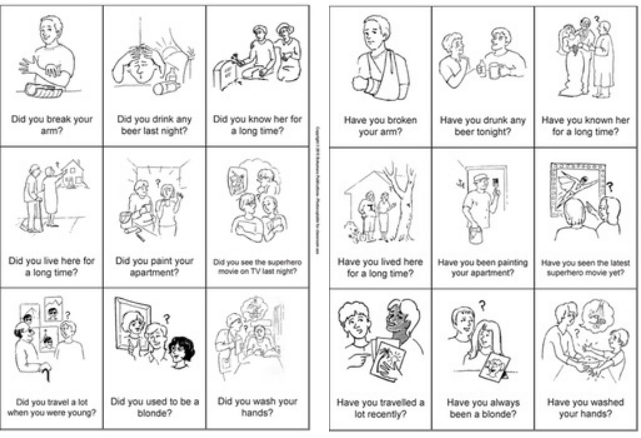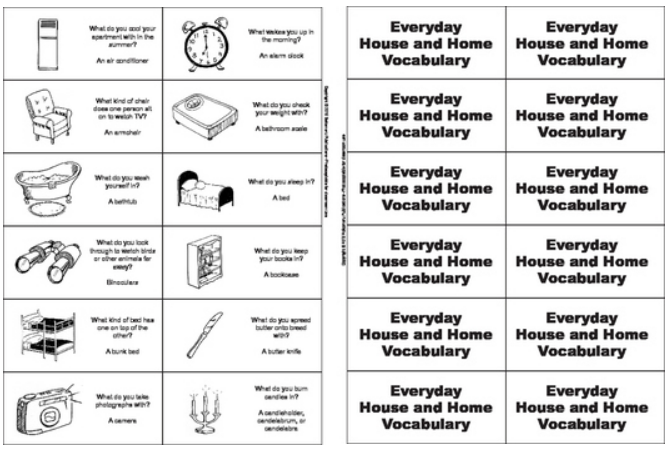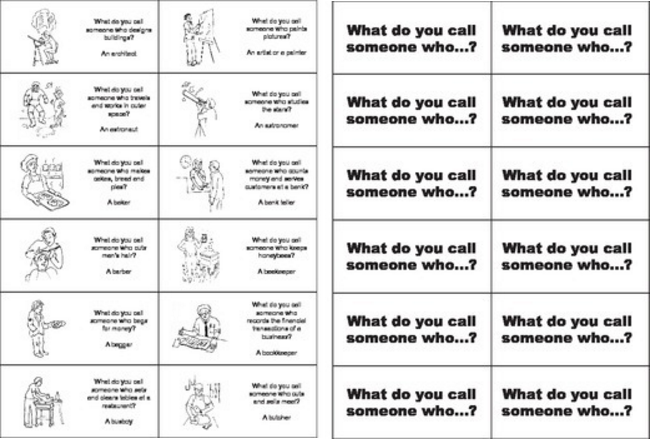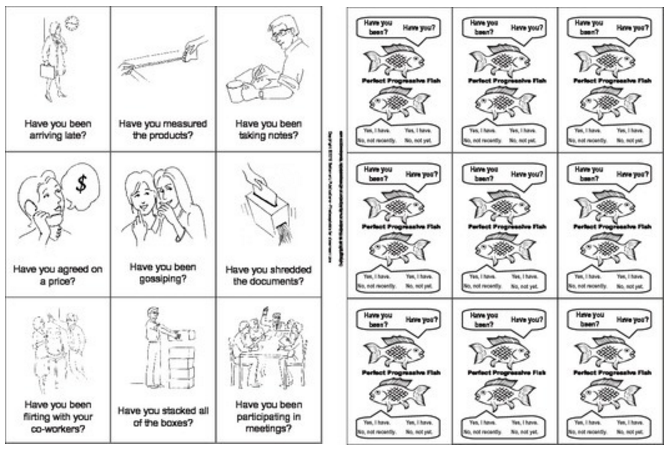ESL Textbooks
Check out our award-winning Actively Engaged series of textbooks for CEGEP ESL from BokomaruPublications.com. On June 8th, 2017, Nicholas Walker, the creator of the Virtual Writing Tutor, was awarded the TESL Canada Innovation Award in Niagara, Canada for his Actively Engaged series of books. On June 6th, 2019, he received the AQPC Mention d’Honneur for teaching excellence at Ahuntsic College. On November 21, 2019, Professor Walker received the Keith Boeckner Award in recognition of his outstanding contribution to ESL in Quebec, Canada.
Actively Engaged Together
Actively Engaged Together is designed for the students with low-proficiency, anxiety, and a limited repertoire of practice strategies. As such, it focuses on basic interpersonal communication skills through storytelling and an automatically scored 8-topic pen pal writing project using the Virtual Writing Tutor grammar checker. Students at this level enjoy exchanging messages each week with peers at the same college or at other schools.
Instead of giving these at-risk students more of what did not work for them in their high school English classes, grammar and vocabulary practice is story-based. Grammar and vocabulary are embedded in short narratives with illustrations, with a variety of oral practice strategy drills in each lesson to make new structures stick. Rather than try to memorize decontextualized rules and verb paradigms, students acquire the language directly as formulaic chunks in obligatory contexts.
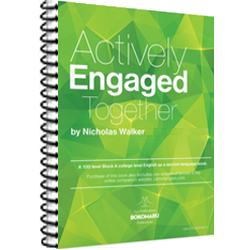
Download sample units of Actively Engaged Together
Actively Engaged on the Job
Actively Engaged on the Job is designed primarily for B-block beginners who need lots of fluency practice, On the Job has proven to be a versatile course book for multi-level groups. It’s packed with interactive activities that keep absenteeism prone students coming week after week.
The book is structured around a series of grammar lessons laid out in the usual order, starting with prepositions and the present tenses, moving through past tenses to conditionals, and ending with modals and future tenses.
The big difference is the way this book contextualizes the grammar practice through weekly writing assignments. Students work in groups to imagine a fictional company. Each student is responsible for writing about the goings on at the company from the perspective of one of the employees there. Each week, they write a section of the story incorporating the grammar and the vocabulary from the lesson. They submit their writing on Labodanglais.com and anonymously peer review two classmates’ stories.
In this way, grammar practice is communicative and contextualized. Additional vocabulary and grammar practice activities are available on Labodanglais.com in the form of fill-in the blank and error-find-and-correct exercises. Again, the emphasis is on meaningful context that lead to productive use.
Find out how you can use Actively Engaged on the Job with your students by contacting bokomaruPublications@gmail.com. For an example of how to use this textbook for multi-level business English courses, have a look here at an integrated flyer and sales pitch evaluation.
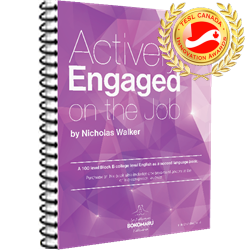
Actively Engaged at College
This ESL textbook is very different from other textbooks.
It uncompromisingly addresses the government objectives head-on. For students at the low-intermediate level, the Ministry competency statement specifically calls for fluency and focused attention on multiple verb tenses, especially past tenses.
- Communiquer en anglais avec une certaine aisance.
- S’exprimer oralement — emploi généralement correct de verbes au passé; formulation de questions pertinentes en situation d’interaction
- Rédiger et réviser un texte — avec une attention plus particulière à quelques modals et à des temps de verbe parmi les suivants : simple present et present continuous, simple past et past continuous, present perfect, future.
So why do so many course books focus on disconnected just-in-case grammar lessons, newsy topics, argumentation, and speaking tasks that employ and elicit a very narrow range of verb tenses? Perhaps, these textbooks authors don’t know what we know:
- A focus on news reports, controversy, and debate in low-intermediate ESL classrooms reduces interest-based motivation, isolating and silencing weaker students (Poupore, 2014). In contrast, dramatic stories were found to have the strongest positive effect on interest-based motivation and group cohesion. Narratives reliably engage more ESL students more of the time than current affairs and controversies.
- Academic writing contains fewer verbs overall and fewer verb tenses with a much higher frequency of present tense verbs. In contrast, narratives have more verbs overall and more verb tenses because of the presence of quoted speech, with a much higher concentration of modals, simple present, present continuous, simple past, past continuous, present perfect, and future tenses (Biber et al., 1999). To elicit a range of verb tenses in authentic communication, we should test students with first-person narrative tasks.
- Emphasizing academic English in courses for non-fluent learners reduces students’ integrative motivation when they find themselves in informal social situations (Segalowitz, 1976). In other words, teaching formal English to weaker students causes them to avoid contact with native speakers because everyday English doesn’t match the academic English they learned at school. Over time, avoidance stunts their fluency.
Actively Engaged at College is completely different from what teachers are used to—but exactly what students need. Instead of essay writing, low intermediates using this book learn to master first-person narratives. Students work together in groups, collaborating to develop dramatic first-person stories. Each week, the just-in-time grammar and vocabulary lessons are exactly what they need for the next chapter in the story. Students want to look good in front of their peers and avoid looking bad, so each week students are motivated to impress each other as they workshop their stories.
In the lab, they submit their narratives to Labodanglais each week for automated scoring and feedback on target structure use and grammatical accuracy. Unlimited instant corrective feedback leads to more revisions, which are rewarded with higher and higher scores. More meaningful engagement week after week makes the grammar stick.
A seven-week writing project
Students work in groups to imagine a fictional house. Each student is responsible for writing about the goings on at the house from the perspective of one of the roommates there. Every story ends up being different because it is told from a different perspective. First person storytelling like this is 100% immune to all forms of plagiarism.
The story begins with a description of the house, a description of their character’s routine, and a description of the clothes that they are wearing (simple present versus present continuous tenses). Next, students describe a party for the new roommate that ends in disaster (simple past). The next morning, they report a dream that reveals a desire or fear (simple past for events versus simple present for the interpretation). Soon after, an influx of pets and relatives make the house seem overcrowded (past simple). The psychological pressure builds, and each character has a bad day (past simple versus past continuous). The story ends with a final conflict in which they hurl accusations at each other before one of the roommates gets punched, another is kissed, and someone is asked to move out (present perfect and past simple passive). Organizing their text and talks chronologically with time markers, students learn to structure their messages cohesively and coherently—a challenge for many students.
After the project is complete, the final writing exam (a summary of the project) elicits a wide range of verb tenses and everyday vocabulary from every student. The final oral creates the interactive context for spontaneous use of pertinent questions and all the grammar from the course in a way that students find incredibly engaging.
It just works so well. Students love it. Teachers trust the pedagogy.
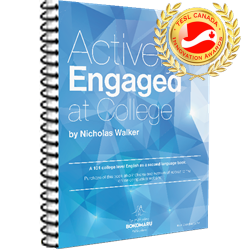
Download sample units of Actively Engaged at College.
Actively Engaged Online
A blog post and YouTube video can reach thousands of people. For this reason, many scholars and professionals communicate online these days, but students toil away at their desks writing essays in longhand. Are we preparing students for time travel back to the 1990s or are we preparing them for the future?
Many ESL teachers want to teach their students digital literacy, but the tools have not been available until now.
Actively Engaged Online teaches students (and teachers) how to create a blog step by step. Students learn how to introduce their program, create an online glossary, write a listicle (list-article), describe a day-in-the-life of a career, a hypertext narrative, and a screencast describing a website that solves a problem linked to their field of study. Everything is ready to start teaching blogging tomorrow: PowerPoints, quizzes, readings, listenings, and writing assignments with easy to score peer-review evaluations on Labodanglais.com.
Get a sample copy of Actively Engaged Online by contacting me by email here: BokomaruPublications@gmail.com.
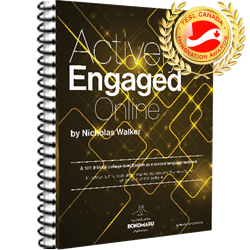
Actively Engaged in Academic Writing
Teach academic writing?
Do you want step-by-step explainer videos and dynamic classroom activities to help you reach underperforming students?
Do you want to try integrating automatically scored academic essay writing tasks into your course?
If you teach ESL in Quebec, Canada, you can get a sample copy of Actively Engaged in Academic Writing by contacting me by email here: BokomaruPublications@gmail.com.
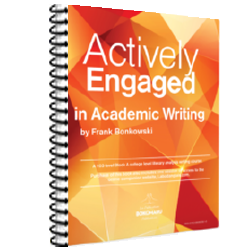
Actively Engaged in Persuasion
This course book trains students to be persuasive in English. Students learn to write and revise an argument essay and persuasive techniques when giving a talk on a controversial issue. It leverages the FastAssignment AI scoring system to automatically evaluate argument essays as a source of formative evaluation, activities to help students set performance goals, and five lessons for reciprocal teaching.
This first draft of Actively Engaged in Persuasion in your hands is for students who can speak fluently and have largely mastered the verb tense system in English—despite the occasional mistake. For these students, the only significant difference between them and their native speaking counterparts at an English language college is their limited vocabulary. Typically, their sentence structures need work, too. Students at this level can usually talk and write at length about a subject in a vague, rambling, and tedious way, so they need help in developing a more strategic and persuasive communication style with greater depth and precision.
The government objectives, therefore, call for these students to talk about important issues—using reliable sources of information, good grammar, relevant vocabulary, and the correct level of formality. In their writing, they must demonstrate the ability to write and revise a text with a range of sentence structures and topic-related vocabulary. Here are the key objectives.
- Exprimer oralement un message sur des sujets à portée sociale, culturelle ou littéraire.
- Communication claire, cohérente et suffisamment détaillée en référence à une ou des sources fiables, ou à une œuvre littéraire.
- Utilisation généralement correcte du code grammatical et du niveau de langue.
- Emploi du vocabulaire pertinent par rapport au sujet traité.
- Utilisation satisfaisante d’une variété de structures de phrases.
With Actively Engaged in Persuasion, students learn how to discuss complex moral questions. They learn how to structure an argument essay using their own and other people’s ideas, to improve their pronunciation and sentence structure, and to connect with their audience in ways that make listeners more receptive to facts and logic. Along the way, Persuasion trains them to become more efficient learners with proven strategies:
- Goal setting accelerates learning by 75%.
- Formative evaluation accelerates learning by 45%.
- Reciprocal teaching accelerates learning by 37%.
- Oral practice strategies make remembering new vocabulary items at least 10% easier.
- Text-to-speech can eliminate pronunciation errors.
- Deliberate practice frees us from cognitive overload.
- Flashcards make vocabulary learning more efficient, social, and enjoyable.
- Writing effective emails will help to preserve the positive teacher-student relationship, which has been shown to accelerate learning by 36% (Hattie, 2009).
Actively Engaged in Persuasion trains students learn to set performance goals, use automated essay evaluation as a source of formative evaluation, set mastery goals before teaching their small group about a moral controversy, find reliable sources on the internet in English, and use flashcards to grow their vocabulary efficiently. Students also learn how to connect with an audience at the start of an oral by establishing identity, unity, credibility, goals, commitment, and curiosity before making their argument about a moral controversy.
Persuasive argument essays are not like the opinion essays that they learned in high school. Using automated evaluation, students learn through task repetition to defend a strong stance, summarize the counterargument, concede to its strengths, and then thoroughly refute it. Teachers using Actively Engaged in Persuasion usually ask their students to write 3-5 essays on taxing sugar, internet censorship, animal rights, abortion, feminism, and body image, with two testing topics: immigration and climate change.
Students love the challenge. Teachers trust the pedagogy.

Praise for Persuasion
Here is what one teacher said on Facebook about using the book and the automated essay scoring system.
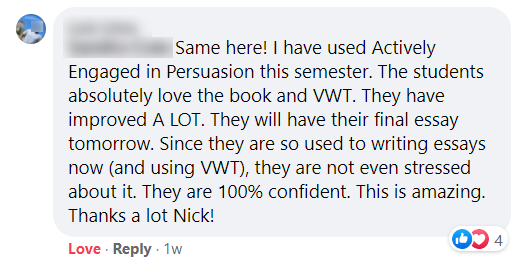
Here are some comments about the automated essay scoring system from students who responded to the anonymous end of semester course evaluation.
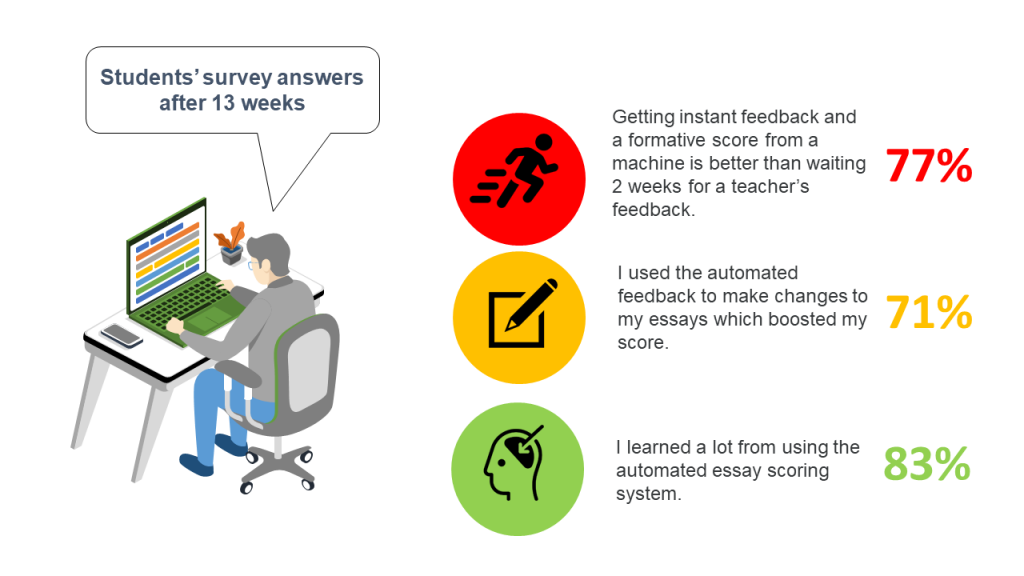
Printables
Check out our popular printable activities for sale on TeachersPayTeachers.com for students and teachers alike.

